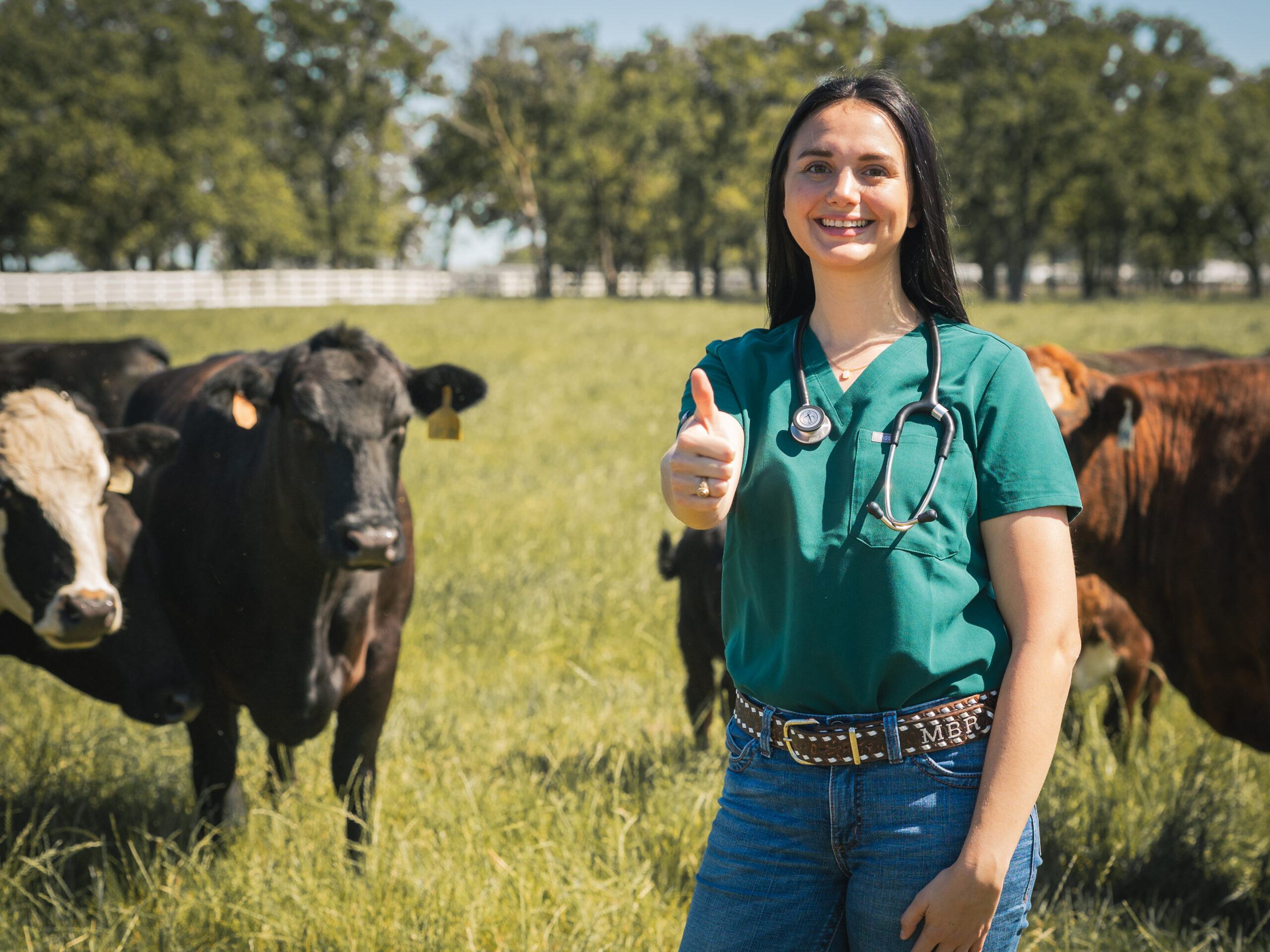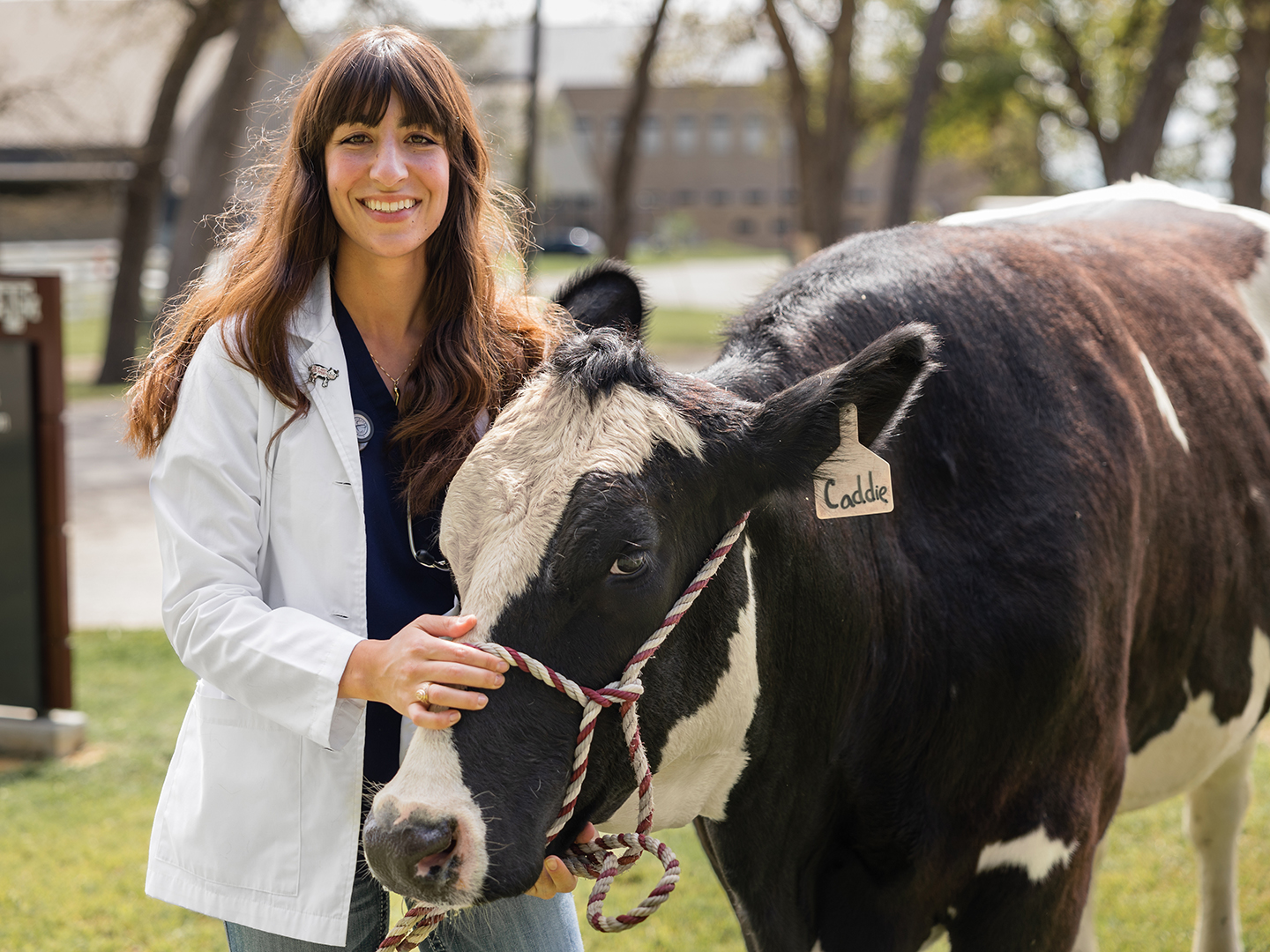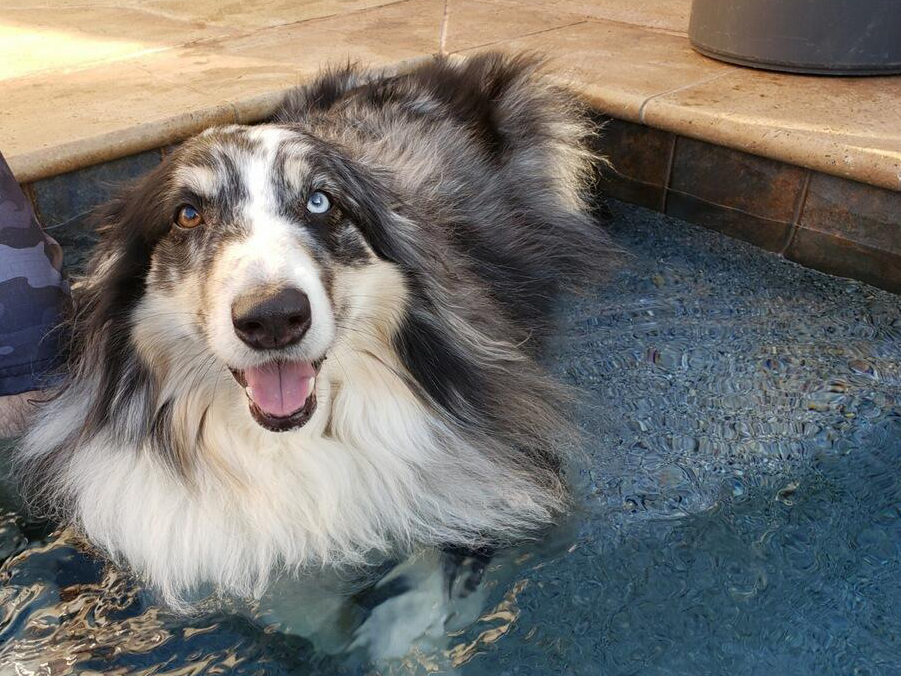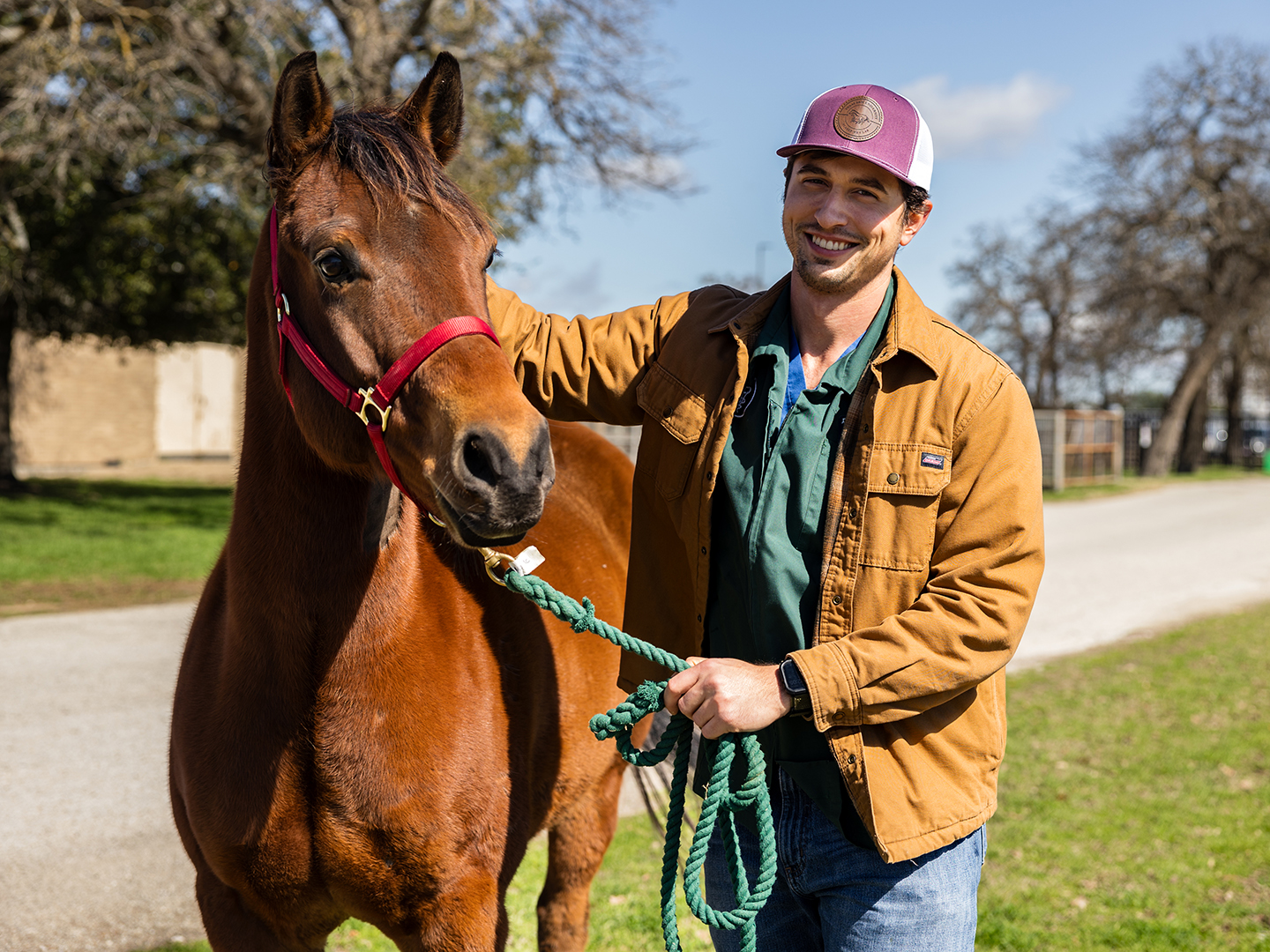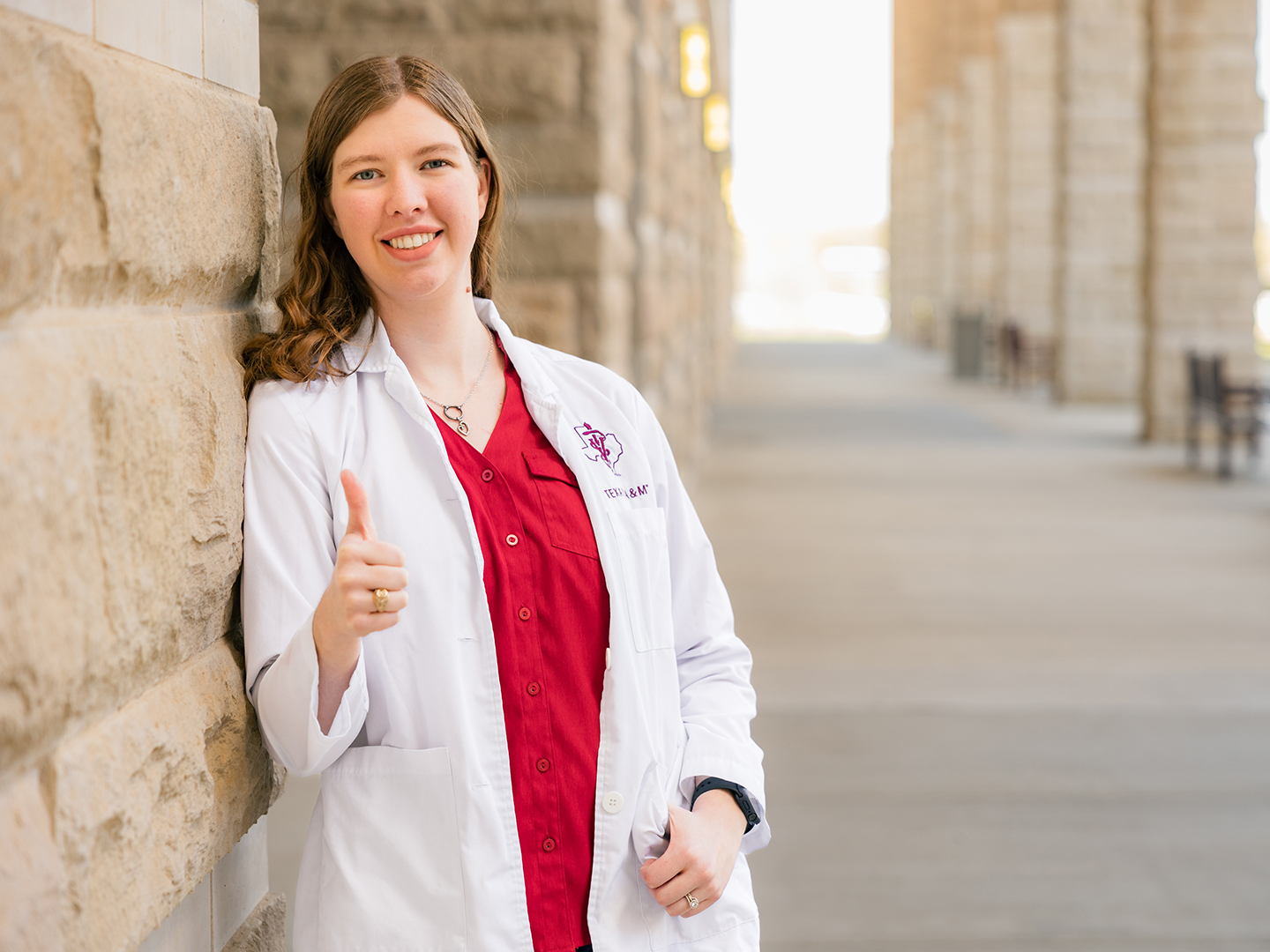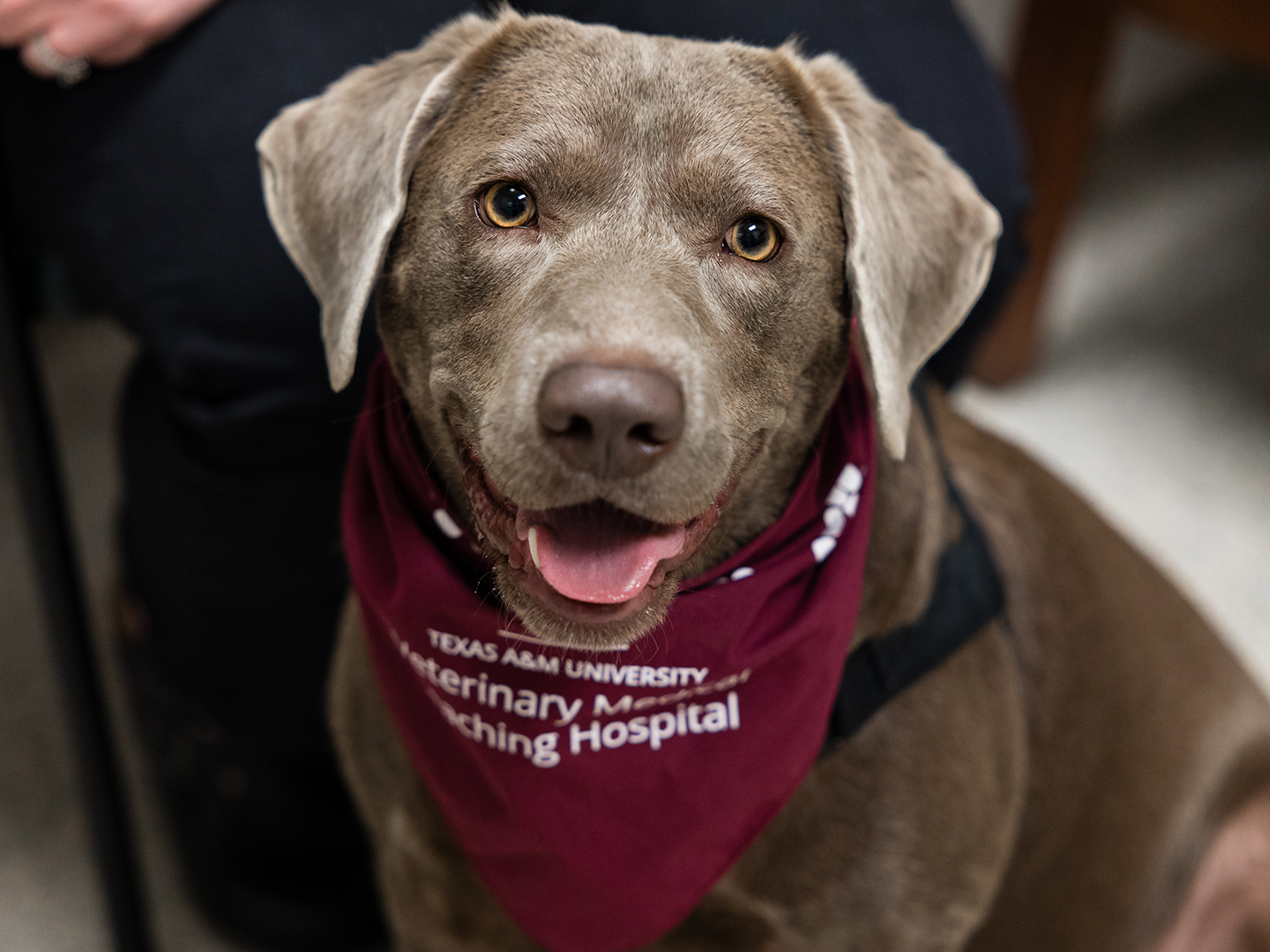News Stories
Graduating Texas A&M Student Pursues Passion For Beef Cattle Medicine
Since she was a young girl walking among her family’s cattle, Madison Roberds has dreamed of becoming a food animal veterinarian and serving the hard-working ranchers of South Texas. This May, as she graduates from the Texas A&M School of Veterinary Medicine & Biomedical Sciences (VMBS) and joins South Texas Veterinary Clinic in Beeville, Texas, […]
Texas A&M, University Of Colorado Research Collaboration Wins Federal Grant To Help Turn Off ‘Breast Cancer Switch’
The five-year study aims to identify more effective treatments. Researchers at the Texas A&M School of Veterinary Medicine & Biomedical Sciences (VMBS) and the University of Colorado Cancer Center have received a $3.3 million grant from the National Institutes of Health to study how a pair of molecules that regulate certain types of metastatic breast […]
Texas A&M Veterinary Student Combines Passions For Dairy Medicine, Public Health
When fourth-year veterinary student Angelica Allegro shadowed a dairy veterinarian for the first time in 2022, she immediately knew that the data-driven field of dairy medicine was where she wanted to spend her life. As Allegro prepares to graduate from the Texas A&M College of Veterinary Medicine & Biomedical Sciences (VMBS) with her Doctor of […]
Australian Shepherd Receives Three Life-Saving Surgeries At Texas A&M Veterinary Hospital
An 8-year-old Australian Shepherd named Ollie survived a monthlong onslaught of unexpected health emergencies thanks to the veterinarians, staff, and students at the Texas A&M Small Animal Teaching Hospital (SATH). During her time at the SATH, Ollie received three life-saving surgeries that began with treatment for bladder stone complications but ended with dangerous blood clots. […]
Texas A&M Professor Honored With Prestigious Veterinary Award
Dr. Nicholas Jeffery, a professor at the Texas A&M College of Veterinary Medicine & Biomedical Sciences (VMBS), is the 2024 recipient of the Bourgelat Award, an honor from the British Small Animal Veterinary Association (BSAVA) that recognizes unsung heroes of the veterinary profession who have made significant contributions to veterinary science, research, clinical practice, education, […]
Discovering A Passion For Equine Medicine
Alex Pastis, a fourth-year Texas A&M Doctor of Veterinary Medicine (DVM) student and future equine veterinarian, proves that passion is a strong, almost unstoppable force. While, unlike many of his peers, Pastis didn’t consider becoming a veterinarian until his freshman year in college, once he’d gained an affinity for the field, his pursuit of a […]
Hagler Fellow Partners With VMBS To Study Connection Between Pig Reproduction, Cancer Resistance
For the next three to five years, the Texas A&M School of Veterinary Medicine & Biomedical Sciences (VMBS) will partner with one of the top evolutionary biologists in the world who is researching whether swine reproduction holds the key to the next wave of cancer research. Hagler Fellow Dr. Günter Wagner, the Alison Richard Professor […]
Aggie Student Overcomes Odds To Graduate With Veterinary Degree
Rebecca Guenther has dreamed of becoming a veterinarian since she was 6 years old and has been working toward that goal for as long as she can remember. “Becoming an Aggie veterinarian is the first step in fulfilling my life’s purpose,” she said. “Every time I am in the clinic, working with a patient or […]
Texas A&M Veterinarians Diagnose Rare Autoimmune Disease, Put Silver Lab On Road To Recovery
Having two autoimmune diseases is unusual for a dog, but having three is exceptionally rare. When Lanie, an English silver Labrador retriever, began showing signs of another illness less than a year after the diagnosis of her first two autoimmune diseases, her owners acted quickly, taking her to their local, trusted emergency veterinary clinic. The […]
Texas A&M Researchers Develop Virtual Tool For Studying Gene Function
Researchers at the Texas A&M School of Veterinary Medicine & Biomedical Sciences (VMBS) have developed a new virtual tool that will allow scientists to study the function of genes more efficiently and hopefully reduce the number of animal models used in genetic research. The tool, called Gene Knockout Inference (GenKI), allows scientists to simulate the […]

